August 1960
| << | August 1960 | >> | ||||
|---|---|---|---|---|---|---|
| Su | Mo | Tu | We | Th | Fr | Sa |
| 1 | 2 | 3 | 4 | 5 | 6 | |
| 7 | 8 | 9 | 10 | 11 | 12 | 13 |
| 14 | 15 | 16 | 17 | 18 | 19 | 20 |
| 21 | 22 | 23 | 24 | 25 | 26 | 27 |
| 28 | 29 | 30 | 31 | |||
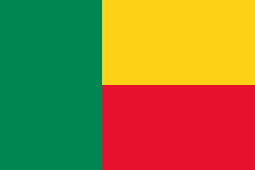
August 1: Dahomey (now Benin) independent
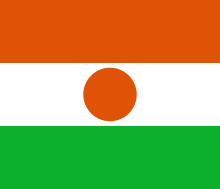
August 3: Niger independent
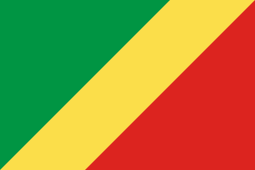
August 15: Former French Congo independent

August 5: Upper Volta (now Burkina Faso) independent

August 16: Cyprus independent from the U.K.
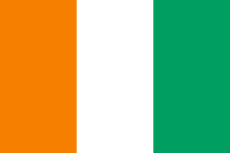
August 7: Ivory Coast (now Cote d'Ivoire) independent
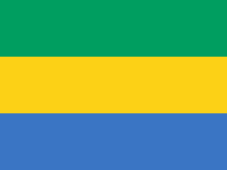
August 17: Gabon independent
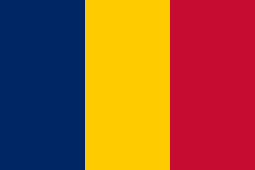
August 11: Chad independent
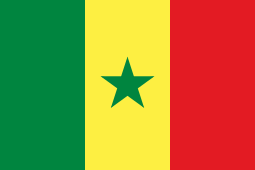
August 20: Senegal independent
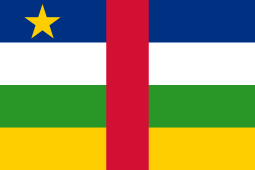
August 13: Central African Republic independent
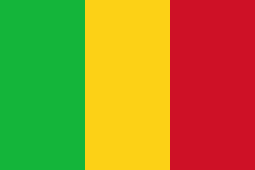
August 20: Mali independent
The following events occurred in August 1960:
August 1, 1960 (Monday)
- The Republic of Dahomey, formerly part of French West Africa as French Dahomey, became independent, with Hubert Maga as its first President.[1][2] In 1975, it would change its name to the Republic of Benin.
- At a dinner at the Swiss Embassy in Beijing, Communist Chinese Premier Zhou Enlai proposed negotiating a peace treaty with the United States, to create "a non-nuclear zone in Asia and the Western Pacific" region. A press officer for the U.S. State Department rejected the idea as "another meaningless propaganda gesture".[2]
- Typhoon Shirley struck Taiwan, killing 126 people.[2]
- Died: Eldon Edwards, 51, Imperial Wizard of the Ku Klux Klan
August 2, 1960 (Tuesday)
- The Continental League, proposed as a third major league for baseball, came to an end after CL President Branch Rickey and co-founder William Shea concluded a meeting in Chicago with representatives of the National League and American League. The NL and AL, each with eight teams, had been confronted with the proposed eight team CL. By agreement, each established league would place franchises in proposed CL cities.[3][4] For 1962, three Continental sites had franchises, with the National League adding the New York Mets and the Houston Colt .45s (later the Astros), while the American League allowed its Washington Senators to relocate to the Minneapolis-St. Paul area as the Minnesota Twins. In later years, teams would be placed in Atlanta (1966), Dallas (1972), Toronto (1976) and Denver (1993). Buffalo, New York, was the only Continental site that would still be without a major league team nearly 60 years later.
August 3, 1960 (Wednesday)
- The Republic of Niger, formerly part of French West Africa as Colony of Niger, became independent, with Hamani Diori as its first President.[5]
- Hector Trujillo resigned abruptly as President of the Dominican Republic. The brother of de facto leader Rafael Trujillo had served as a figurehead, and was succeeded by Joaquín Balaguer.[6]
- A fire, at the Soviet research center at Mirny Station in Antarctica, fed by gale force winds and hampered by a lack of equipment, killed eight meteorologists.[7]
August 4, 1960 (Thursday)
- NASA test pilot Joseph A. Walker became the fastest man in history as he flew an X-15 at a speed of 2,196 miles per hour, breaking a record set in 1956 by Milburn Apt, who had been killed while flying an X-2.[8]
- Born:
- José Luis Rodríguez Zapatero, Prime Minister of Spain 2004 to 2011; in Valladolid
- Dean Malenko, American professional wrestler, in Irvington, New Jersey
August 5, 1960 (Friday)
- The Republic of Upper Volta, formerly part of French West Africa as French Upper Volta, became independent, with Maurice Yaméogo as its first President.[9] In 1984, the nation changed its name to the Burkina Faso.
- Died: Arthur Meighen, 86, Prime Minister of Canada from 1920 to 1921, and briefly in 1926
August 6, 1960 (Saturday)
- In response to a United States embargo against Cuba, Fidel Castro nationalized American and foreign-owned property in the nation.[2][10]
- Born: Vishal Bhardwaj, Indian film director, in Bijnor, Uttar Pradesh.
August 7, 1960 (Sunday)
- Côte d'Ivoire (also referred to as the Ivory Coast), formerly part of French West Africa, became independent of France, with Félix Houphouët-Boigny as its first President.[11]
- The Bluebell Railway, in Sussex, England, began regular operation as the first standard gauge steam-operated passenger preserved railway in the world.[12]
August 8, 1960 (Monday)

South Kasai flag
- The Mining State of South Kasai, with its capital at Bakwanga (now Mbuji-Mayi), seceded from the rest of the Republic of the Congo, by declaration of Chief Albert Kalonji. Congolese troops recaptured Bakwanga two weeks later on August 24.[2]
August 9, 1960 (Tuesday)
- Laotian coups: The government of Laos was overthrown in a coup led by Captain Kong Le, and supported by rebellious units within the Laotian Army. Prime Minister Samsonith was in Luang Prabang, making preparations for the funeral of the late King of Laos, when the army units struck in Vientiane. Former Premier Souvanna Phouma formed a new cabinet on August 15, and civil war was averted after the new King asked, on August 29, that a new ministry be created, and to include members of the old regime. The legislature approved the new ministry on August 31.[2]
- Voters in a referendum in Alaska elected (by a margin of about 19,000 to 17,000) against moving the state capital from Juneau to a new site to be constructed between the Cook Inlet and Fairbanks.[2]
August 10, 1960 (Wednesday)
- The Canadian Bill of Rights became effective.[13]
- U.S. Navy frogmen successfully recovered the satellite Discoverer 13, marking the first retrieval of a satellite after twelve previous attempts had failed. Although plans to make the first mid-air capture failed, the recovery opened the era of the spy satellite.[14]
- The Institute of Heraldry was created under United States Army General Order Number 29.[15]
- Born: Antonio Banderas, Spanish actor, in Málaga
August 11, 1960 (Thursday)
- The Republic of Chad, formerly part of French Equatorial Africa as French Chad, became independent, with François Tombalbaye as its first President.
August 12, 1960 (Friday)
- Echo 1, the first communications satellite, was successfully launched by NASA. Weighing 137 pounds, Echo was a 100-foot-diameter (30 m) Mylar balloon, inflated after it reached orbit when the Sun's heat converted powders inside the balloon into gas. A pre-recorded message from U.S. President Eisenhower was transmitted from Goldstone, California, bounced off of Echo, and received at a station in Holmdel, New Jersey. The largest satellite launched up to that time, Echo was big enough that it could be seen from the Earth as it orbited at an average altitude of 1,000 miles.[2]
- USAF Major Robert M. White set a record by flying an X-15 rocket plane to an altitude of 136,500 feet (26.85 miles or 41.6 kilometers), besting the mark of 126,200 feet set by Iven C. Kincheloe in an X-2 in 1956.[2]
August 13, 1960 (Saturday)
- The Central African Republic, formerly Ubangi-Shari in the colony of French Equatorial Africa, became independent, with David Dacko as its President.
- Typhoon Wendy killed at least 18 people in central Japan.[2]
August 14, 1960 (Sunday)
- North Korea's President Kim Il-sung made his first proposal for the reunification of his nation and South Korea under a "North–South Confederation" or "Confederal Republic of Koryo". The plan, proposed again in 1971, 1980 and 1991, envisioned both nations initially keeping their political systems, with a "Supreme National Committee" to guide cultural and economic development.[16]
- Born: Sarah Brightman, English singer, in Berkhamsted, Hertfordshire.
August 15, 1960 (Monday)
- The Republic of the Congo, an autonomous colony of France since 1958, formerly known as the French Congo or a part of French Equatorial Africa, attained independence under that name, becoming the second nation to use that name. In that the Belgian Congo was also referred to as the Republic of the Congo, reference to the nation's capital was made as Congo (Brazzaville), to distinguish it from Congo (Léopoldville) (later Zaire), and now the Democratic Republic of the Congo. Former Roman Catholic priest Fulbert Youlou became the nation's first President.
August 16, 1960 (Tuesday)
- Joseph Kittinger parachuted from a balloon over New Mexico at 102,800 feet (31,333 m). He set records, which stood for 52 years, for highest altitude jump; longest free-fall by falling 16 miles (25.7 km) over a period of 4 minutes and 38 seconds before opening his parachute; and fastest speed by a human without motorized assistance (320 mph).[17] On October 14, 2012, Felix Baumgartner of Austria (using Kittinger as his adviser) would break all of Kittinger's records except for the longest duration for a free-fall, plunging 128,100 ft (39,045 m) in 4 minutes, 19 seconds.[18]
- After 82 years as a British colony, the Mediterranean island of Cyprus was proclaimed independent by its last British Governor, Sir Hugh Foot. The new state, populated by Cypriots of Greek and Turkish descent, had Greek Cypriot Archbishop Makarios III as its President, and Turkish Cypriot Fazıl Küçük as its Vice-President.[2] The Sovereign Base Areas of Akrotiri and Dhekelia would remain as British Overseas Territories.
August 17, 1960 (Wednesday)
- The first successful running of a computer program written in COBOL was carried out on an RCA 501 computer. [19]COBOL, the "Common Business Oriented Language", was an improvement in the adaptation of the FLOW-MATIC computer language developed by Grace Hopper.
- Gabon, formerly part of French Equatorial Africa, was granted independence from France.
- While campaigning for the presidency in Greensboro, North Carolina, Richard Nixon bumped his left knee on a car door. What seemed, at first, to be a minor injury, led to a painful infection and Nixon's hospitalization on August 29.[20] Nixon was kept at Walter Reed Hospital for 11 days, until asking to be discharged early on September 9 after a poll showed that John F. Kennedy had taken a lead over him in voter preferences [21] His injury, his nearly two week absence from the campaign trail, and his continued illness would be cited by historians as a factor in his defeat, from the loss of momentum after his nomination [22] to his poor appearance in the first televised presidential debate. [23]
- Aeroflot Flight 36 from Cairo to Moscow, an Il-18 airliner, caught fire and crashed near Kiev, killing all 27 persons on board.[2] [24]
- Born: Sean Penn, American actor, screenwriter, and politician, in Santa Monica, California
August 18, 1960 (Thursday)
- The first photograph ever from a spy satellite was taken, after the launch of the American Discoverer 14 at 12:15 pm PDT, and showed a Soviet airfield at Mys Shmidta.[25] With 3,000 feet of film, the satellite took more pictures than all 24 of the U-2 spy plane flights put together, and revealed the existence, not previously known to the U.S., of 64 airfields and 26 missile bases.[26]
- At a meeting of the U.S. National Security Council, President Eisenhower told CIA Director Allen Dulles that Congolese Premier Patrice Lumumba needed to be "eliminated" in order to keep the Congo from becoming "another Cuba". Robert Johnson, who took notes of the meeting, revealed the information at a Senate hearing years later.[27]
- A French Navy bomber exploded over Morocco, killing all 27 persons on board.[2]
- Peter Poole became the first white man in Kenya to hang for the murder of a black house servant, Kamawe Musunge.
August 19, 1960 (Friday)
- The Soviet Union launched Sputnik 5 into orbit, with the dogs Belka and Strelka (Russian for "Squirrel" and "Little Arrow"), 40 mice, 2 rats and a variety of plants. Recovered the next day after 18 orbits, the menagerie became the first living animals to return safely to Earth after being placed into orbit.[2][28]
- A capsule from the Discoverer 14 satellite became the first object to be recovered in mid-air while returning from space. A C-119 Flying Boxcar, one of ten in the recovery area, snagged the object with "trapeze-like hooks" at an altitude of 8,500 feet.[2][14]
- A French Navy bomber exploded over Morocco, killing all 27 persons on board.[2]
- In Moscow, downed American U-2 pilot Francis Gary Powers was convicted of espionage against the Soviet Union, and sentenced to ten years imprisonment.[29] Powers would be released two years later in exchange for the spy Rudolf Abel.
August 20, 1960 (Saturday)
- Senegal seceded from the Mali Federation, following a dispute, between Defense Minister Mamadou Dia and Federation Premier Modibo Keita, over whether the Federation's first President would be a figurehead or a strongman. Keita fired Dia, and Dia had Keita arrested. Keita and non-Senegalese members of his cabinet were sent back to Mali the next day, and Dia became the first Prime Minister of Senegal. The Federation had been created by a union of the colonies of Senegal and the French Sudan prior to independence, and the former French Sudan retained the name Republic of Mali.[2]
August 21, 1960 (Sunday)
- USS Seadragon completed the first undersea crossing of the Northwest Passage, and then turned toward the North Pole.[30]
- Died: David B. Steinman, 74, American bridge engineer
August 22, 1960 (Monday)
- Leaders of the Tunisian-based Algerian Provisional Government asked the United Nations to hold a referendum in French Algeria on the question of independence from France.[2][31]
- Discussions in Geneva, between the United States, the Soviet Union and the United Kingdom on a nuclear test-ban treaty, adjourned indefinitely.[2]
August 23, 1960 (Tuesday)
- Hans Peter Luhn received U.S. Patent No 2,950,048 for "computer for verifying numbers", the Luhn algorithm. United States Patent Office. Assigned to the IBM Corporation, the checksum formula provides a method for validating credit card numbers.
- Died: Oscar Hammerstein II, 65, American lyricist. A week later, the lights of Times Square[32] were turned off for one minute, and London's West End[33] lights were dimmed in recognition of his contribution to the musical.
August 24, 1960 (Wednesday)
- In Washington, reporters asked President Eisenhower about Vice-President (and Republican presidential candidate) Richard Nixon's experience. Charles Mohr of TIME Magazine asked Ike "if you could give us an example of a major idea of his that you had adopted ..." and the President replied "If you give me a week, I might think of one." [34]
- The Sabin polio vaccine, designed by Dr. Albert Sabin to be taken orally rather than the polio shots developed by Dr. Jonas Salk, was announced as "suitable for use in the United States" by Surgeon General Leroy E. Burney.[35]
- The "coldest temperature recorded on Earth" was measured at the −88.3 °C (−126.9 °F) at the Soviet Vostok Station.[36] The current record low is −89.2 °C (−129 °F), recorded at the same station on July 21, 1983.
- Sixty people were killed in Brazil when a bus fell from a bridge into a river near São José do Rio Preto.[2]
- Born:
- Takashi Miike, Japanese filmmaker, in Yao, Osaka
- Steven W. Lindsey, American astronaut, in Arcadia, California
August 25, 1960 (Thursday)
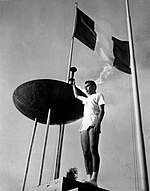
Peris lights the Olympic flame
- The 1960 Summer Olympics opened in Rome, with a record 5,348 athletes from 83 nations competing. Cross-country champion Giancarlo Peris lit the Olympic flame after Italy's President Giovanni Gronchi declared the Games of the 17th Olympiad open. Competition continued until September 11.[37]
- The submarine USS Seadragon surfaced at the North Pole, where the crew played softball in the northernmost athletic competition ever staged.[38]
August 26, 1960 (Friday)
- CIA Director Allen Dulles cabled instructions to station chief Larry Devlin, authorizing wider authority for the "removal" of Congolese Premier Patrice Lumumba, including assassination.[27]
- John Devitt of Australia was declared the winner over Lance Larson of the United States in a controversial judgment at the Summer Olympic swimming competition in the men's 100 meter freestyle.[39][39]
- Born: Branford Marsalis, American jazz musician, in Breaux Bridge, Louisiana
- Died: Knud Enemark Jensen, 23, Danish cyclist, in a hospital in Rome after fracturing his skull in a fall during his Olympic cycling event.[40] A post-mortem examination revealed that he was under the influence of performance-enhancing drugs.[39]
August 27, 1960 (Saturday)
- "Axe Handle Saturday" took place in Jacksonville, Florida, as racial tensions in came to a head as 200 white men armed with baseball bats and axe handles attacked protesters conducting sit-ins at Hemming Plaza.[41]
- Final performance of the original Louisiana Hayride series.
- In the final of the Women's 200 metre breaststroke at the Olympics, British swimmer Anita Lonsbrough broke the world record with a time of 2:49.5, a 1⁄2 second ahead of West Germany's Wiltrud Urselmann.[39]
August 28, 1960 (Sunday)
- The Declaration of San José, resulting from a meeting of Ministers of Foreign Affairs at San José, Costa Rica,[42] condemned any interference by extra-continental powers in the affairs of the American republics. The declaration was approved unanimously (19–0).
- The United Nations announced that it had sufficient peacekeeping troops in the Congo to preserve order, and demanded that the last of Belgium's forces there be withdrawn.[2]
August 29, 1960 (Monday)
- Hazza Majali, the Prime Minister of Jordan, was assassinated in the explosion of a time bomb that had been placed in one of the drawers of his desk, at his office in Amman. Eleven other people were killed as well, and 65 were injured.[43]
- Air France Flight 343, a Lockheed L-1049 Super Constellation airliner on a flight from Paris, crashed into the Atlantic Ocean while attempting to land during a torrential rain at Dakar in Senegal, killing all 63 persons on board.[44][45]
- A 300 foot in diameter weather balloon, described by the U.S. Air Force as "the largest ever launched", crashed into a home in Stockton, California, an hour after being sent up from Vernalis Air Force Base. Mrs. Ben Petero evacuated her six children from the frame house after realizing that the balloon was descending on the family home.[46]
- Australian swimmer Dawn Fraser won the Women's 100 metres freestyle for the second time. The next day, Fraser clashed with her teammates, who shunned her for the remainder of the Games in the tradition of "sending one to Coventry".[39]
August 30, 1960 (Tuesday)
- John F. Kennedy appointed four "Cold War" aides in anticipation of his victory in the United States presidential election.[47]
August 31, 1960 (Wednesday)
- South Africa lifted the state of emergency that had been in effect since the Sharpesville massacre in March.[48]
- Born: Hassan Nasrallah, General Secretary of Hezbollah, in Bourj Hammoud, Lebanon
- Died: Abe Martin, 62, comic strip artist (Boots and Her Buddies)
gollark: You could do a *bit* of poor-people-saving.
gollark: You could... profit off the crash, trying to mostly take rich people's money, and then donate your newly obtained wealth to the poor?
gollark: If you actually believe that, you could make money off it when it happens.
gollark: You're talking about one *in the next 20 years*, which hasn't.
gollark: 1. that hasn't *happened* yet. You're generalizing from a literally nonexistent example.2. I think their regulation kind of goes in the wrong directions.
References
- "New African Nation Born", Arizona Republic (Phoenix), August 1, 1960, p4
- "Chronology August 1960", The World Almanac and book of facts, 1961 (New York World-Telegram, 1960), pp178–182
- "Continental League Baseball Bid Is Dead", The Post-Standard (Syracuse, New York), August 3, 1960, p1
- "3d League Paves Way for Major Expansion", Chicago Tribune, August 3, 1960, p4-1
- "Niger Independent", The Post-Standard (Syracuse, New York), August 3, 1960, p1
- "Dominican Strongman's Brother Quits", Oakland Tribune, August 3, 1960, p1
- Tom Griffiths, Slicing the Silence: Voyaging to Antarctica (Harvard University Press, 2007), p149
- "X15 Sets 2,150-mph Speed Mark", Oakland Tribune, August 4, 1960, p1
- "Third West Africa Nation Of Week Gets Independence", Oakland Tribune, August 5, 1960, p6
- "Castro Regime Grabs Rest of U.S. Property", Oakland Tribune, August 7, 1960, p1
- "Ivory Coast Hails Independence", The Independent (Long Beach, California), August 8, 1960, p4
- Cole, T. C. (1970). Bluebell Railway – Steaming On!. Sheffield Park: Bluebell Railway.
- Ian Bushnell, The Federal Court of Canada: A History, 1875–1992 (University of Toronto Press, 1997) p145
- Jeffrey Richelson, The Wizards of Langley: Inside the CIA's Directorate of Science and Technology (Westview Press, 2002), pp25–26
- "This week in Quartermaster History". Archived from the original on 2011-05-18. Retrieved 2009-11-18.
- In-gwan Hwang, The Neutralized Unification of Korea in Perspective (Schenkman, 1980), p88
- "U.S. Chutist Sets Height, Fall Records", Oakland Tribune, August 16, 1960, p1
- "Skydiver breaks sound barrier, record", San Francisco Chronicle, October 14, 2012
- Kurt W. Beyer, Grace Hopper and the Invention of the Information Age (MIT Press, 2009)
- "Nixon Works On Speeches; 'Feels Fine'", Oakland Tribune, August 30, 1960, p1
- David Pietrusza, 1960: LBJ Vs. JFK Vs. Nixon : the Epic Campaign that Forged Three Presidencies (Sterling Publishing, 2008) p317
- Jonathan Aitken, Nixon: A Life (Regnery Publishing, 2015) p234
- Douglas Gomery, Media in America: The Wilson Quarterly Reader (Woodrow Wilson Center Press, 1998) p105
- Aviation Safety Network
- Loch K. Johnson, Secret Agencies: U.S. Intelligence in a Hostile World (Yale University Press, 1996) p16
- Clayton K.S. Chun, Aerospace Power in the Twenty-first Century: A Basic Primer (Air University Press, 2002) p208
- Tim Weiner, Legacy of Ashes: The History of the CIA (Anchor Books, 2008), p188
- "Space Dogs Back Safe", Oakland Tribune, August 21, 1960, p1
- "Powers Given 10-Year Term By Russian Military Court", Oakland Tribune, August 19, 1960, p1
- NavSource Online
- "Algerian Rebels Seek Referendum", Oakland Tribune, August 22, 1960, p1
- "Blackout on Broadway to Honor Hammerstein", The New York Times, p. 52, September 1, 1960
- "London Honors Hammerstein", New York Times, August 26, 1960, p14
- "Decisions? ' I Make'em ', Ike Affirms", Salt Lake Tribune, August 25, 1960, p1; Stephen E. Ambrose, Eisenhower: Soldier and President (Simon & Schuster, 1991) p525
- "Use of 'Polio Pills' Approved by U.S.", Oakland Tribune, August 24, 1960, p1
- Official Year Book of the Commonwealth of Australia, 1967 (Australian Bureau of Statistics, 1967), p36
- David Maraniss, Rome 1960: The Olympics That Changed the World (Simon & Schuster, 2008)
- http://www.navsource.org/archives/08/0858412.jpg
- David Wallechinsky, The Complete Book of the Olympics (Penguin Books, 1984)
- "First Games' Fatality", Oakland Tribune, August 26, 1960, p1
- "50 Injured In Florida Race Clash", Oakland Tribune, August 28, 1960, p1
- Avalon Project
- "Assassins' Time Bomb Kills Premier of Jordan, 10 Others", Oakland Tribune, August 29, 1960, p1
- "63 Die as French Airliner Misses Field, Crashes in Sea", Oakland Tribune, August 29, 1960, p1
- Aviation Safety Network
- "Home Swallowed By Big Balloon", Oakland Tribune, August 29, 1960, p1
- This Day in the 1960s
- James Zug, in South Africa's Resistance Press: Alternative Voices in the Last Generation Under Apartheid(Ohio University Center for International Studies, 2000), p138
This article is issued from Wikipedia. The text is licensed under Creative Commons - Attribution - Sharealike. Additional terms may apply for the media files.